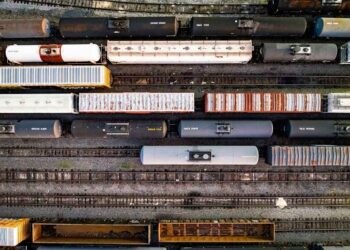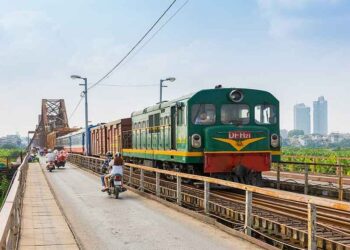MEC Infrastructure is constructing a first-of-its-kind private railway line in Indonesia. The company will build a 130km freight corridor in the East Kalimantan province in Indonesia. MEC is a partnership between the Government of Ras al Khaimah, UAE and MEC Holdings.
The new railway corridor will transport coal produced at MEC’s Muara Wahau mine in the East Kutai region of East Kalimantan province to a port terminal at Bengalon. MEC is also constructing a deepwater port at Bengalon.
MEC will invest around $1.2bn in the new railway line project. Construction of the first phase of the railway corridor is expected to be completed by 2011.
Upon completion, the new railway line will have the capacity to handle 32mtpa of coal.
MEC has completed the acquisition of land for the project and cleared the land for the total corridor. The company plans to sign the engineering, procurement and commissioning (EPC) contract in May 2010.
Indonesia private railway freight corridor project
Construction of the new railway corridor is part of a $5bn investment being made by MEC in the East Kalimantan region, which is rich in mineral resources. The new railway line will help in carrying raw material and finished goods to and from the East Kalimantan province. MEC is planning to construct several other industrial facilities in the East Kalimantan region, including a power plant, an aluminium smelter and a fertiliser plant.
The plan to construct the new railway corridor was proposed in July 2008 by MEC. In March 2009, the Regency of East Kutai approved the project and provided the company with the licence to procure, construct and operate the railway corridor.
IL&FS Transportation Networks Limited (ITNL) is providing MEC with the finance required for building the infrastructure needed for the railway project, as well as other projects planned by the company. ITNL is part of India’s IL&FS Group, which actively supports infrastructure-related projects. MEC has partnered with CANAC Railway Services for operating and maintaining the railway and port terminal.
The feasibility studies for the railway line were conducted by ARUP and KPMG. ARUP identified the route of the railway line and the entire layout of the transport corridor. The necessary infrastructure such as roads and bridges, terminal and jetty structure, and cargo-handling facilities for the railway line were detailed by the company. Along with KPMG, ARUP prepared the possible timeline for the project’s construction. The companies also estimated the procurement costs involved and developed a complete financial plan and risk matrix for the railway line.
The new project has received the complete support of the Indonesian Investment Coordinating Board and the local governments of East Kalimantan and East Kutai. Construction of the new railway line will meet the development needs of the East Kalimantan communities, the population of which is about 2.75 million (2004). The project is also expected to improve infrastructure in the region.
The new railway corridor is a positive development for Indonesia, which has been unable to attract substantial new foreign investments in its poor road, railway and port networks. Bureaucratic and legal bottlenecks were considered to be important deterrents for such infrastructure projects.
The investments being made by MEC are expected to attract more investments into Indonesia. It is estimated that by 2030, investments worth $20bn will flow into Indonesia, generating around 100,000 jobs. The new railway project alone is expected to generate 2,000 to 2,500 jobs in the country.
Indonesia railway freight corridor future
The first phase of the railway line will have a single track with the capacity to handle 32mtpa of coal. MEC plans to develop infrastructure in the future to double the railway track and increase the capacity of the railway line to handle another 70mtpa of coal. An additional 100km of railway line is also being planned by the company.
































